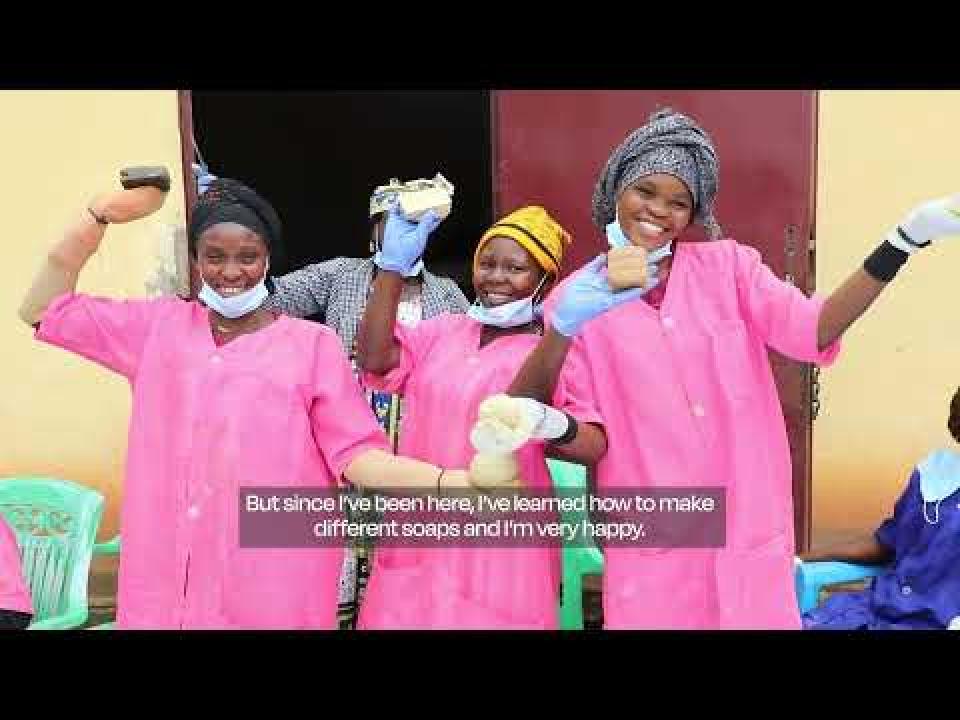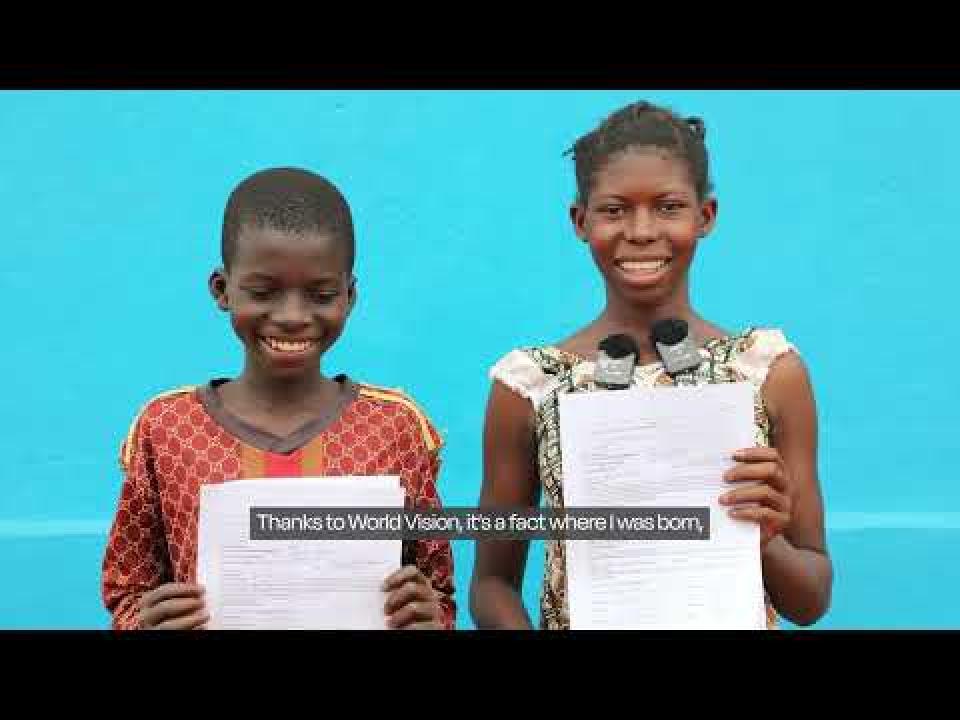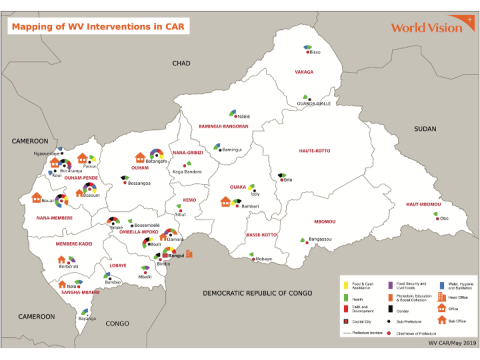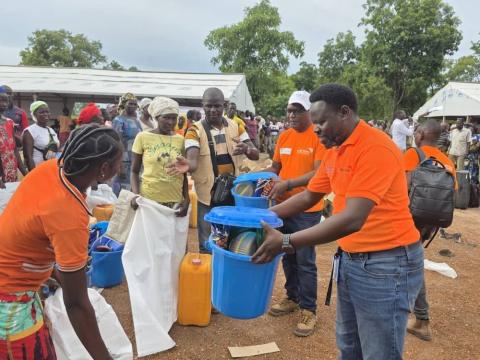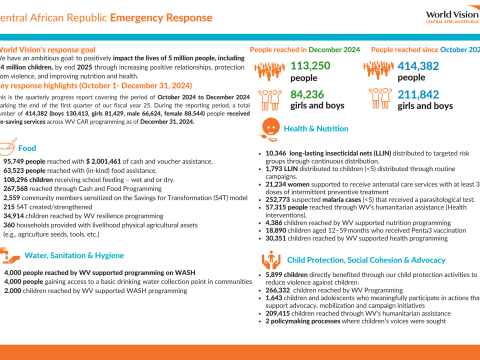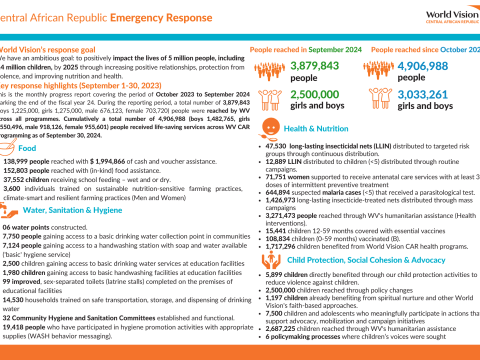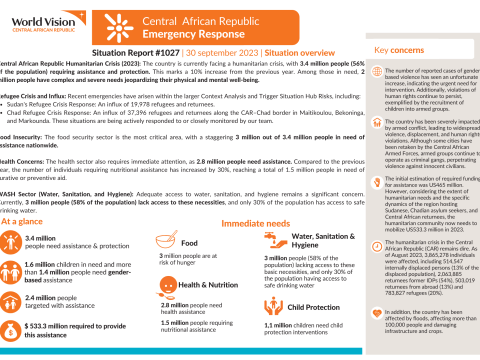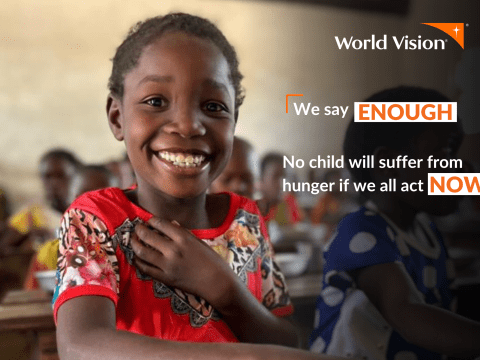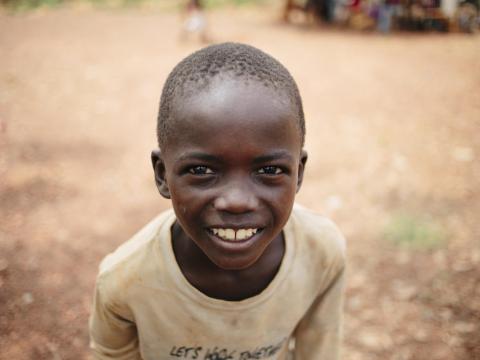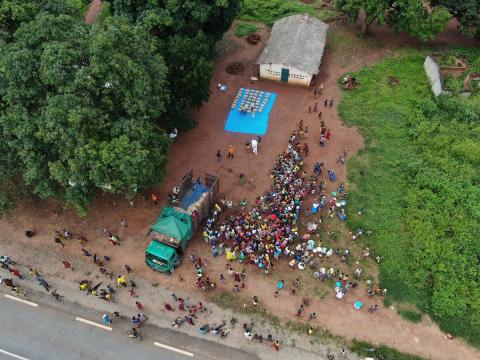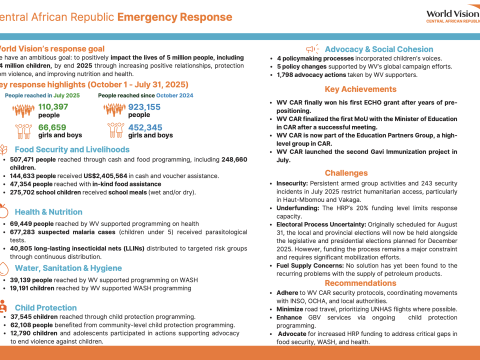
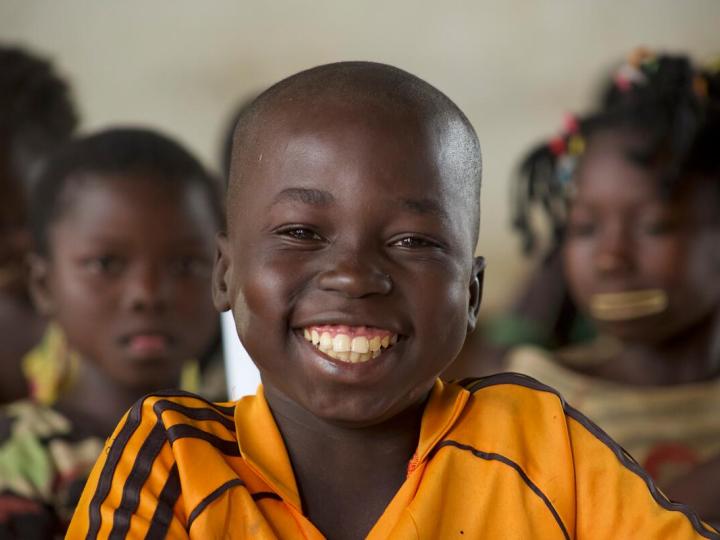
Central African Republic: Our Latest Humanitarian Efforts
Explore our latest initiatives, articles, and emergency response efforts in the Central African Republic, aimed at creating meaningful impact and positive change in the region.
Central African Republic
World Vision Central African Republic
In Central African Republic, intense militia activity and inter-community violence pose significant challenges, limiting humanitarian access and endangering civilians. The country has the highest per capita humanitarian needs, with 50% of the population relying on aid for survival, as reported by the United Nations Office for the Coordination of Humanitarian Affairs (OCHA). The total number of internally displaced persons (IDPs) in the Central African Republic (CAR) was estimated at 488,866 individuals. 25% (120,521) of these IDPs are living in dedicated sites and 75% (368,345) are in host families.
Moreover, 24,416 individuals, including 19,715 refugees and 4,701 Central African returnees, have sought refuge in the Central African Republic from Sudan due to clashes between the Sudanese Armed Forces and the Rapid Support Forces. 88% of the arrivals are women and children. These individuals have settled in the Vakaga, Bambingui-Bangoran, and Haute-Kotto prefectures. Additionally, 37,396 individuals, including 5,617 Central African returnees, arrived from Chad seeking safety in the sub-prefectures of Paoua and Markounda in the northwest, fleeing incursions by a Chadian armed group. These displaced individuals are currently living with host families, compounding the vulnerable situations already faced by the hosts.
As a result of these challenges, the hunger crisis in the Central African Republic has reached critical levels. Approximately 2.7 million people, comprising 2 million individuals in the Integrated Food Security Phase Classification (IPC) Phase 3 (Crisis) and 642,000 individuals in the Integrated Food Security Phase Classification (IPC) Phase 4 (Emergency), are experiencing severe food insecurity. Factors exacerbating this situation include severe flooding, dry spells, and ongoing conflict, which increase insecurity and limit access to food. Shockingly, 50% of the population in Central African Republic does not have sufficient food, making it one of the countries with the highest proportion of critically food-insecure people.
As of 06 November, the 2023 Humanitarian Response Plan (HRP) for $533.3 million is only 46% funded compared to 95% funded in 2022. The Food Security sector is particularly underfunded at only 26% of the requested $60.3 million. This significant drop in funding raises serious concerns, as the needs in Central African Republic remain substantial and ongoing.
World Vision Central African Republic’s Response:
World Vision Central African Republic has been actively working since 2014 to support vulnerable children, including refugees, displaced persons, host communities, and returnees. Our interventions in sectors such as health and nutrition, food security and livelihoods, WASH, child protection, social cohesion, faith and development, and gender-based violence prevention have reached 3.1 million people in Central African Republic in 2022.
Our commitment is to impact 2.1 million of the most vulnerable children (aged 0-18) by 2025, ensuring their increased well-being. We focus on sustainable recovery, resilience building, economic and climate justice, system strengthening, hunger relief, and addressing basic needs. Collaborating with stakeholders, we utilize their expertise and efficiently allocate resources to address health challenges in the country. Our projects include community management of acute malnutrition, implementing the 7-11 strategy for maternal and child health, reinforcing the community healthcare system, and promoting total community sanitation.
In response to food insecurity, we provide essential emergency food aid and cash assistance to support vulnerable populations. Our programs go beyond immediate relief by empowering communities to create productive assets, strengthen livelihoods, and enhance their capacity. We also prioritize the empowerment of marginalized groups, particularly women, through initiatives like savings groups, skills training, vocational programs, and support for youth affected by displacement or living in rural areas.
Within our Water, Sanitation, and Hygiene (WASH) program, we strive for equality in access to sustainable and sufficient sources of clean water. We also work to improve sanitation and hygiene practices throughout the country. We promote rainwater harvesting technologies and micro-irrigation systems to support agricultural and livestock production, especially during periods of limited rainfall and drought, thereby enhancing food availability.
Ensuring the safety and well-being of children is at the core of our work. We address and prevent abuse, neglect, exploitation, and violence comprehensively. We advocate and create a protective environment for children by partnering with religious leaders, community leaders, law enforcement agencies, parents, caregivers, and families. We establish safe spaces specifically designed for children and implement programs that provide essential psychosocial support and case management for survivors of gender-based violence, children in conflict with the law, and children associated with armed forces and groups.
Our Impact
2.1 million
World Vision Central African Republic is committed to impacting 2.1 million of the most vulnerable children (aged 0-18) by 2025, ensuring their increased well-being through sustainable recovery, resilience building, economic and climate justice, system strengthening, and addressing basic needs, emphasizing the sustainable impact on the lives of the most vulnerable children.
30,000
Aiming to promote better hygiene practices and reduce waterborne diseases in targeted communities across the Central African Republic. This work falls within the organization’s Water, Sanitation, and Hygiene (WASH) program and includes the promotion of rainwater harvesting technologies and micro-irrigation systems to support agricultural and livestock production, particularly during periods of limited rainfall and drought, thereby enhancing food availability.
Our Areas of Focus
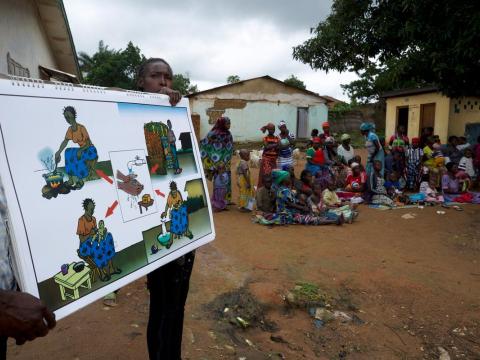
Community-Based Healthcare Initiatives
At World Vision CAR, our community-based healthcare initiatives focus on enhancing primary healthcare provision through collaboration with local healthcare professionals, volunteers, and community leaders. We implement projects such as community management of acute malnutrition, the 7-11 strategy for maternal and child health, total community sanitation, and the reinforcement of the community healthcare system.
Our efforts aim to improve the well-being of mothers and children in the Central African Republic and prevent unnecessary deaths.
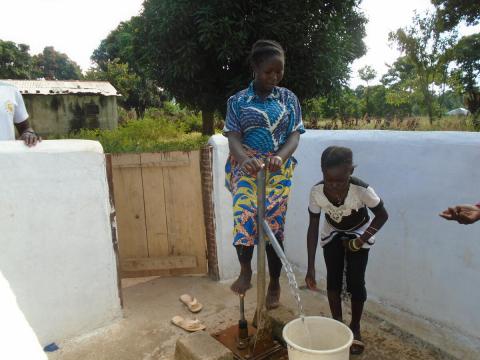
Water, Sanitation & Hygiene (WASH) Program
In our Water, Sanitation, and Hygiene (WASH) program, we strive to ensure equality in access to sustainable and sufficient sources of clean water while also improving sanitation and hygiene practices throughout the country. We promote the use of rainwater harvesting technologies and micro-irrigation systems to enhance food availability, especially during periods of limited rainfall and drought. Our program also works to improve community-level health by ensuring vulnerable individuals have access to water, sanitation, and hygiene services.
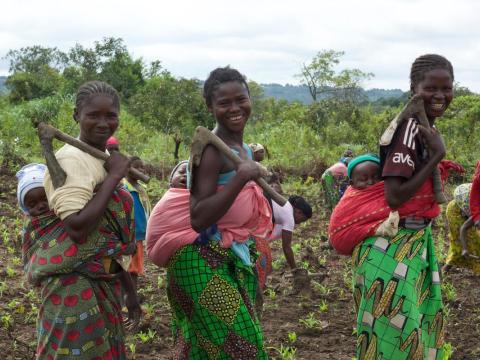
Food Security and Livelihoods
Addressing food insecurity in the Central African Republic, World Vision CAR provides essential emergency food aid and cash assistance while also focusing on long-term solutions. We help communities create productive assets, strengthen their livelihoods, and enhance their capacity, ultimately improving ecosystems and agricultural practices.
Our programs prioritize the empowerment of marginalized groups, particularly women, through initiatives such as savings groups, skills training, vocational programs, and support for youth affected by displacement or living in rural areas.
